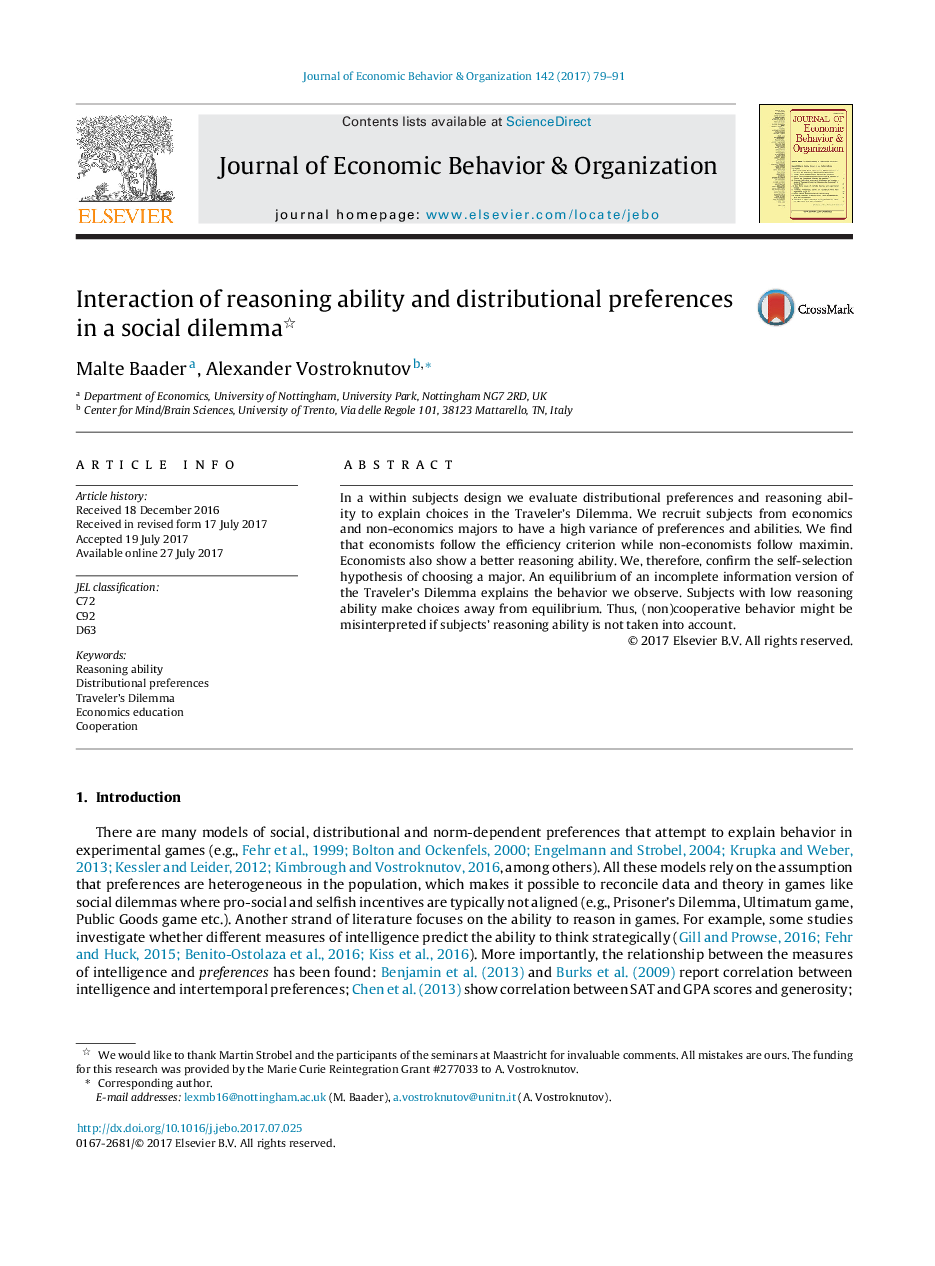| Article ID | Journal | Published Year | Pages | File Type |
|---|---|---|---|---|
| 5034454 | Journal of Economic Behavior & Organization | 2017 | 13 Pages |
Abstract
In a within subjects design we evaluate distributional preferences and reasoning ability to explain choices in the Traveler's Dilemma. We recruit subjects from economics and non-economics majors to have a high variance of preferences and abilities. We find that economists follow the efficiency criterion while non-economists follow maximin. Economists also show a better reasoning ability. We, therefore, confirm the self-selection hypothesis of choosing a major. An equilibrium of an incomplete information version of the Traveler's Dilemma explains the behavior we observe. Subjects with low reasoning ability make choices away from equilibrium. Thus, (non)cooperative behavior might be misinterpreted if subjects' reasoning ability is not taken into account.
Related Topics
Social Sciences and Humanities
Economics, Econometrics and Finance
Economics and Econometrics
Authors
Malte Baader, Alexander Vostroknutov,
